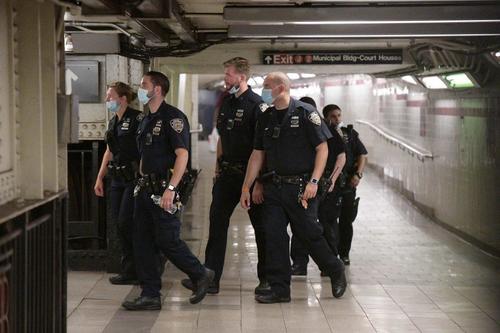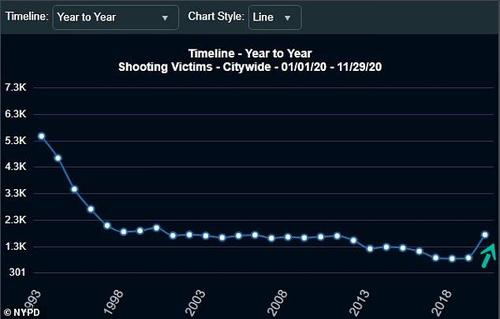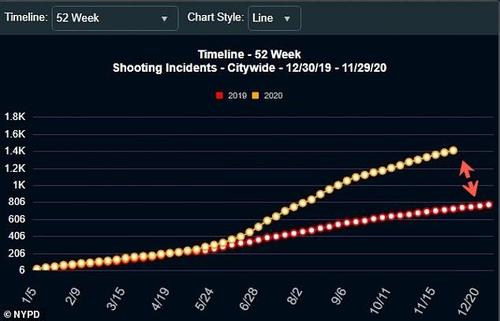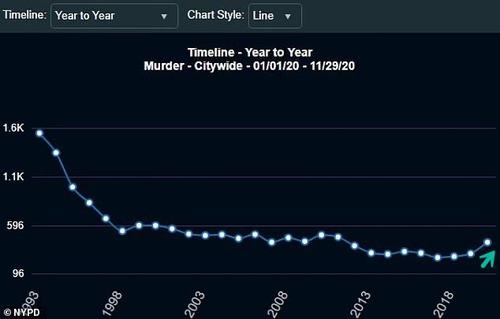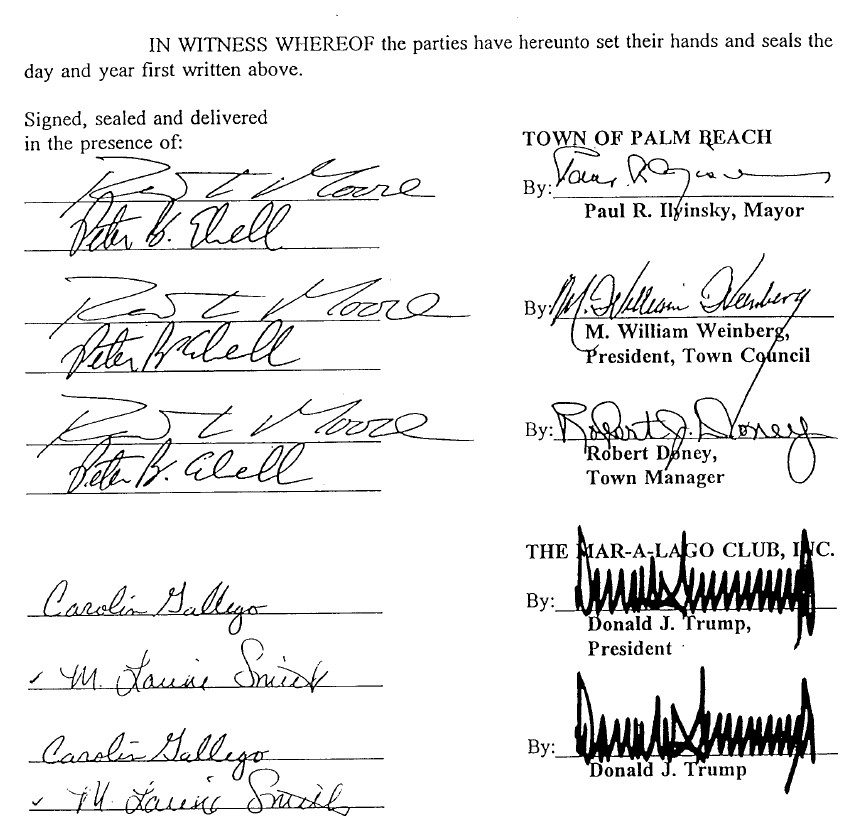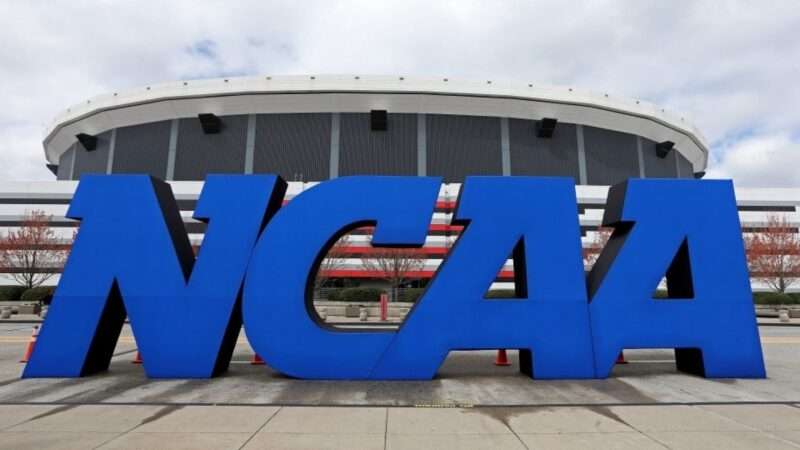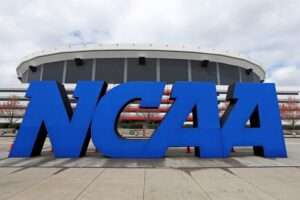Authored (mostly satirically) by CJ Hopkins via The Consent Factory,
2020 was GloboCap Year Zero. The year when the global capitalist ruling classes did away with the illusion of democracy and reminded everyone who is actually in charge, and exactly what happens when anyone challenges them.

In the relatively short span of the last ten months, societies throughout the world have been transformed beyond recognition. Constitutional rights have been suspended. Protest has been banned. Dissent is being censored. Government officials are issuing edicts restricting the most basic aspects of our lives … where we can go, when we can go there, how long we are allowed to spend there, how many friends we are allowed to meet there, whether and when we can spend time with our families, what we are allowed to say to each other, who we can have sex with, where we have to stand, how we are allowed to eat and drink, etc. The list goes on and on.
The authorities have assumed control of the most intimate aspects of our daily lives. We are being managed like inmates in a prison, told when to eat, sleep, exercise, granted privileges for good behavior, punished for the slightest infractions of an ever-changing set of arbitrary rules, forced to wear identical, demeaning uniforms (albeit only on our faces), and otherwise relentlessly bullied, abused, and humiliated to keep us compliant.
None of which is accidental, or has anything to do with any actual virus, or any other type of public health threat.
Yes, before some of you go ballistic, I do believe there is an actual virus, which a number of people have actually died from, or which at least has contributed to their deaths … but there is absolutely no evidence whatsoever of any authentic public health threat that remotely justifies the totalitarian emergency measures we are being subjected to or the damage that is being done to society. Whatever you believe about the so-called “pandemic,” it really is as simple as that. Even if one accepts the official “science,” you do not transform the entire planet into a pathologized-totalitarian nightmare in response to a health threat of this nature.
The notion is quite literally insane.
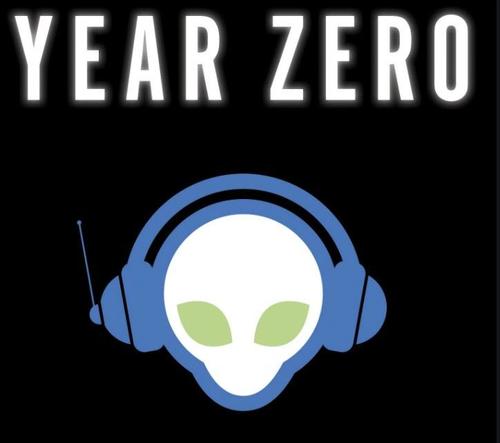
GloboCap is not insane, however. They know exactly what they are doing … which is teaching us a lesson, a lesson about power. A lesson about who has it and who doesn’t. For students of history it’s a familiar lesson, a standard in the repertoire of empires, not to mention the repertoire of penal institutions.
The name of the lesson is “Look What We Can Do to You Any Time We Fucking Want.” The point of the lesson is self-explanatory. The USA taught the world this lesson when it nuked Hiroshima and Nagasaki. GloboCap (and the US military) taught it again when they invaded Iraq and destabilized the entire Greater Middle East. It is regularly taught in penitentiaries when the prisoners start to get a little too unruly and remember that they outnumber the guards. That’s where the “lockdown” concept originated. It isn’t medical terminology. It is penal institution terminology.
As we have been experiencing throughout 2020, the global capitalist ruling classes have no qualms about teaching us this lesson. It’s just that they would rather not to have to unless it’s absolutely necessary. They would prefer that we believe we are living in “democracies,” governed by the “rule of law,” where everyone is “free,” and so on. It’s much more efficient and much less dangerous than having to repeatedly remind us that they can take away our “democratic rights” in a heartbeat, unleash armed goon squads to enforce their edicts, and otherwise control us with sheer brute force.
People who have spent time in prison, or who have lived in openly totalitarian societies, are familiar with being ruled by brute force. Most Westerners are not, so it has come as a shock. The majority of them still can’t process it. They cannot see what is staring them in the face. They cannot see it because they can’t afford to see it. If they did, it would completely short-circuit their brains. They would suffer massive psychotic breakdowns, and become entirely unable to function, so their psyches will not allow them to see it.
Others, who see it, can’t quite accept the simplicity of it (i.e., the lesson being taught), so they are proposing assorted complicated theories about what it is and who is behind it … the Great Reset, China, the Illuminati, Transhumanism, Satanism, Communism, whatever. Some of these theories are at least partially accurate. Others are utter bull-goose lunacy.
They all obscure the basic point of the lesson.
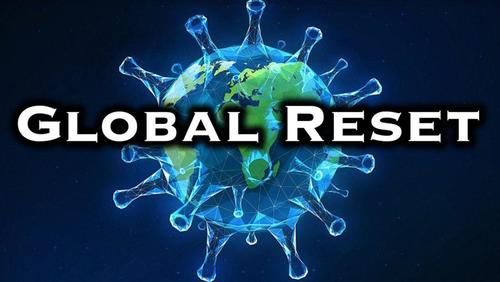
The point of the lesson is that GloboCap – the entire global-capitalist system acting as a single global entity – can, virtually any time it wants, suspend the Simulation of Democracy, and crack down on us with despotic force. It can (a) declare a “global pandemic” or some other type of “global emergency,” (b) cancel our so-called “rights,” (c) have the corporate media bombard us with lies and propaganda for months, (d) have the Internet companies censor any and all forms of dissent and evidence challenging said propaganda, (e) implement all kinds of new intrusive “safety” and “security” measures, including but not limited to the physical violation of our bodies … and so on. I think you get the picture. (The violation of our bodies is important, which is why they love “cavity searches” in prison, and why the torture-happy troops at Abu Ghraib were obsessed with sexually violating their victims.)
And the “pandemic” is only one part of the lesson. The other part is being forced to watch (or permitted to watch, depending on your perspective) as GloboCap makes an example of Trump, as they made examples of Corbyn and Sanders, as they made examples of Saddam and Gaddafi, and other “uncooperative” foreign leaders, as they will make an example of any political figurehead that challenges their power. It does not matter to GloboCap that such political figureheads pose no real threat. The people who rally around them do. Nor does it make the slightest difference whether these figureheads or the folks who support them identify as “left” or “right.” GloboCap could not possibly care less. The figureheads are just the teaching materials in the lesson that they are teaching us.
And now, here we are, at the end of the lesson … not the end of the War on Populism, just the end of this critical Trumpian part of it. Once the usurper has been driven out of office, the War on Populism will be folded back into the War on Terror, or the War on Extremism, or whatever GloboCap decides to call it … the name hardly matters. It is all the same war.
Whatever they decide to call it, this is GloboCap Year Zero. It is time for reeducation, my friends. It is time for cultural revolution. No, not communist cultural revolution … global capitalist cultural revolution. It is time to flush the aberration of the last four years down the memory hole, and implement global “New Normal” Gleichschaltung, to make sure that this never happens again.
Oh, yes, things are about to get “normal.” Extremely “normal.” Suffocatingly “normal.” Unimaginably oppressively “normal.” And I’m not just talking about the “Coronavirus measures.” This has been in the works for the last four years.
Remember, back in 2016, when everyone was so concerned about “normality,” and how Trump was “not normal,” and must never be “normalized?” Well, here we are. This is it. This is the part where GloboCap restores “normality,” a “new normality,” a pathologized-totalitarian “normality,” a “normality” which tolerates no dissent and demands complete ideological conformity.
From now on, when the GloboCap Intelligence Community and their mouthpieces in the corporate media tell you something happened, that thing will have happened, exactly as they say it happened, regardless of whether it actually happened, and anyone who says it didn’t will be labeled an “extremist,” a “conspiracy theorist,” a “denier,” or some other meaningless epithet. Such un-persons will be dealt with ruthlessly. They will be censored, deplatformed, demonetized, decertified, rendered unemployable, banned from traveling, socially ostracized, hospitalized, imprisoned, or otherwise erased from “normal” society.
You will do what you are told. You will not ask questions. You will believe whatever they tell you to believe. You will believe it, not because it makes any sense, but simply because you have been ordered to believe it. They aren’t trying to trick or deceive anybody. They know their lies don’t make any sense. And they know that you know they don’t make any sense. They want you to know it. That is the point. They want you to know they are lying to you, manipulating you, openly mocking you, and that they can say and do anything they want to you, and you will go along with it, no matter how insane.
If they order you to take a fucking vaccine, you will not ask what is in the vaccine, or start whining about the “potential side effects.” You will shut up and take the fucking vaccine.
If they tell you to put a mask on your kid, you will put a fucking mask on your fucking kid. You will not go digging up Danish studies proving the pointlessness of putting masks on kids.
If they tell you the Russians rigged the election, then the Russians rigged the fucking election.
And, if, four years later, they turn around and tell you that rigging an election is impossible, then rigging an election is fucking impossible.
It isn’t an invitation to debate. It is a GloboCap-verified fact-checked fact.
You will stand (or kneel) in your designated, color-coded, social-distancing box and repeat this verified fact-checked fact, over and over, like a fucking parrot, or they will discover some new mutant variant of virus and put you back in fucking “lockdown.” They will do this until you get your mind right, or you can live the rest of your life on Zoom, or tweeting content that no one but the Internet censors will ever see into the digital void in your fucking pajamas. The choice is yours … it’s is all up to you!
Or … I don’t know, this is just a crazy idea, you could turn off the fucking corporate media, do a little fucking research on your own, grow a backbone and some fucking guts, and join the rest of us “dangerous extremists” who are trying to fight back against the New Normal. Yes, it will cost you, and we probably won’t win, but you won’t have to torture your kids on airplanes, and you don’t even have to “deny” the virus!
That’s it … my last column of 2020. Happy totalitarian holidays!




